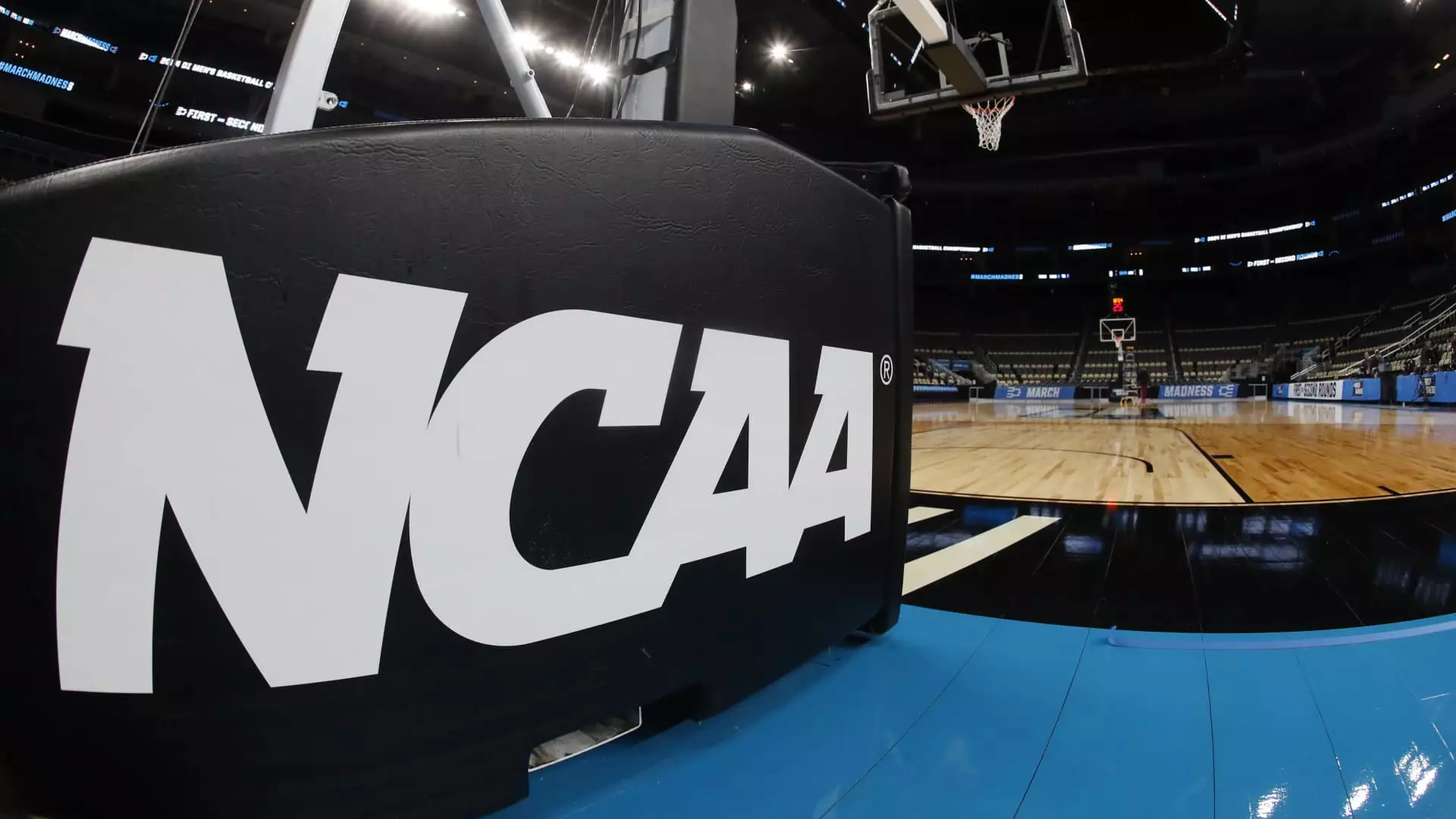In a significant and contentious development, the National Collegiate Athletic Association (NCAA) recently overhauled its policies regarding transgender student-athletes, particularly impacting the ability of trans women to compete in women’s sports. This decision was made just after President Donald Trump signed an executive order aimed at withholding federal funding from educational institutions that allow trans women to participate in female athletic competitions. The NCAA’s revised policy now stipulates that individuals assigned male at birth can practice with women’s teams and access medical benefits, but they are explicitly barred from competing in formal contests.
This critical pivot reflects a broader cultural and political battle over the rights of transgender individuals, fueled by legislative efforts and executive actions that promote a binary understanding of gender. Under the new guidelines, any student assigned female at birth who undergoes testosterone treatment or hormone therapy also faces exclusion from women’s teams. The NCAA’s previous policy – which aligned with the international standards set by the Olympic governing bodies – is now seemingly discarded, indicating a substantial shift in the organization’s approach to inclusion and eligibility.
NCAA President Charlie Baker emphasized the need for “clear, consistent, and uniform eligibility standards” to accommodate a diverse range of student athletes across the United States. The assertion suggests a desire for coherence amid a backdrop of varying state laws and judicial decisions regarding transgender participation in sports. However, this rationale raises pertinent questions about the implications for athletes who do not fit neatly within the prescribed norms of masculinity and femininity. Critics argue that these sweeping restrictions simplify a complex issue and fail to address the nuances of gender identity, effectively marginalizing trans athletes who seek fair play.
Moreover, Baker’s remarks about the minimal number of trans athletes currently participating in NCAA sports – reportedly fewer than ten – might lead one to wonder about the motivation behind such sweeping changes. If such a small cohort participates, the urgency of implementing such strict policies comes into serious question. The policy risks alienating a demographic that has faced longstanding discrimination and struggle for recognition.
The recent developments concerning the NCAA echo a larger national conversation shaped by President Trump’s administration, which has consistently sought to redefine sex and gender politics. Trump’s assertion that there are only two sexes and his orders banning the open service of transgender individuals in the military underscore an administration-wide effort to curtail the rights and visibility of transgender people. This pattern reflects an ongoing societal tension that pits traditional views of gender against the evolving understanding of identity and self-expression.
Trans rights advocate Chris Mosier poignantly highlighted these concerns, expressing that the NCAA’s new focus on assigned sex at birth perpetuates a binary concept of gender that fails to recognize the identities of many individuals, including intersex people and those undergoing hormone therapy for medical conditions. By framing the debate in binary terms, the NCAA inadvertently contributes to a narrative that seeks to legislate away the identities of those who do not conform, fundamentally undermining the principles of diversity and inclusion that sports organizations like the NCAA are supposedly built upon.
The NCAA’s policy shift marks a contentious intersection of sports, politics, and identity that demands careful scrutiny and compassion. As society grapples with the implications of such changes, it is vital to prioritize the voices and rights of all athletes, regardless of gender identity. The dialogue surrounding inclusion in sports is far from over, and the decisions made today will reverberate for generations to come.


Leave a Reply